Introduction
In today’s digital age, WhatsApp has become a cornerstone of communication, connecting millions of people across the globe. From quick texts to heartfelt conversations, it’s a tool that keeps relationships alive, especially in long-distance scenarios. However, as convenient as WhatsApp is, it can also be a breeding ground for confusion and conflict. The key phrase, how WhatsApp causes misunderstandings in relationships, highlights a growing concern for couples, friends, and families. Misinterpretations of tone, delayed responses, and over-reliance on text-based communication can create friction where none was intended. This blog explores the ways WhatsApp can lead to misunderstandings and offers practical solutions to navigate these challenges, ensuring your relationships remain strong.
How WhatsApp Causes Misunderstandings in Relationships
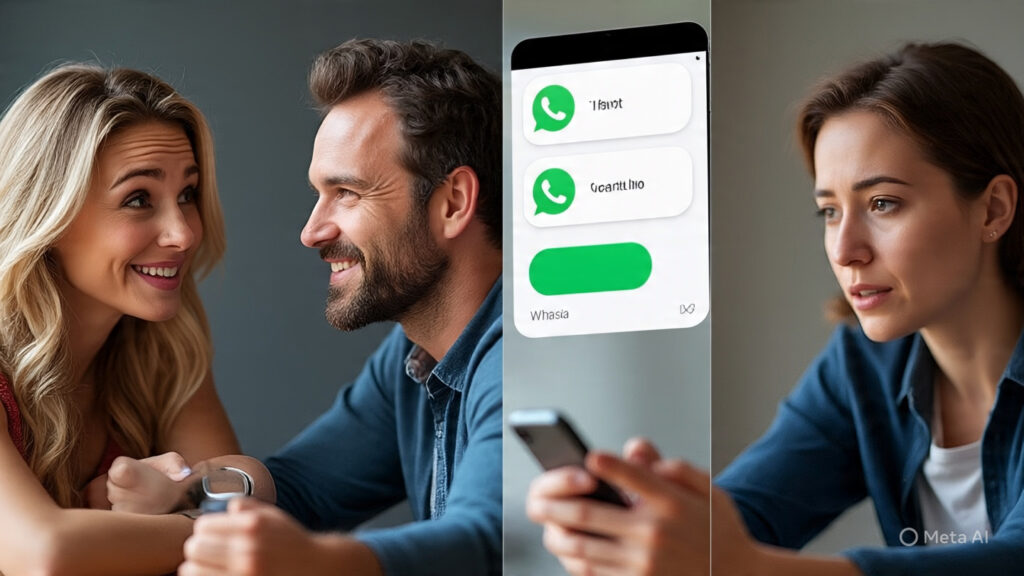
The Lack of Non-Verbal Cues
One of the primary ways WhatsApp causes misunderstandings in relationships is through the absence of non-verbal communication. In face-to-face interactions, body language, facial expressions, and tone of voice provide context that helps us understand intent. On WhatsApp, these cues are missing, making it easy to misinterpret messages.
- Tone Misinterpretation: A simple “Okay” can seem dismissive or angry without vocal inflection, even if the sender meant it neutrally.
- Emojis as a Double-Edged Sword: While emojis can add emotion, they can also be ambiguous. For example, a winking emoji might be playful to one person but flirtatious or sarcastic to another.
- Sarcasm and Humor: Jokes often fall flat in text form, leading to confusion or hurt feelings.
To avoid these issues, consider clarifying your tone explicitly or using voice notes to convey emotion more accurately.
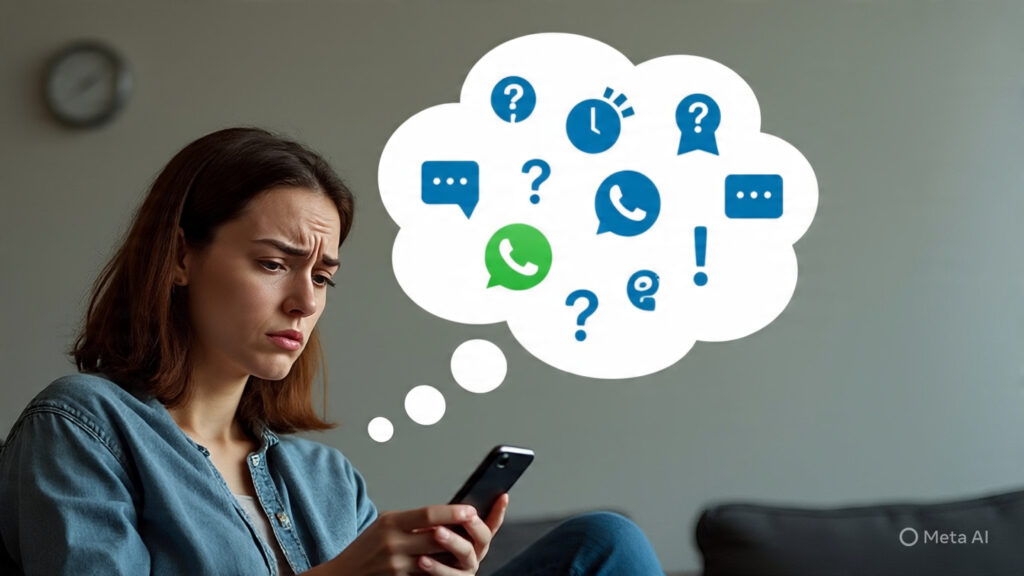
Delayed Responses and the “Read Receipt” Dilemma
WhatsApp’s blue checkmarks, indicating a message has been read, can be a source of anxiety. When someone sees a message but doesn’t respond immediately, it can spark assumptions about their priorities or feelings.
- Perceived Ignorance: A delayed reply might be interpreted as disinterest or avoidance, even if the recipient is simply busy.
- Overthinking Timestamps: Seeing someone was “online” but didn’t reply can lead to unnecessary speculation.
- Pressure to Respond: The expectation of instant replies can create stress, especially in heated discussions.
Tip: Set clear expectations about response times with your partner or friends, and avoid jumping to conclusions based on read receipts.
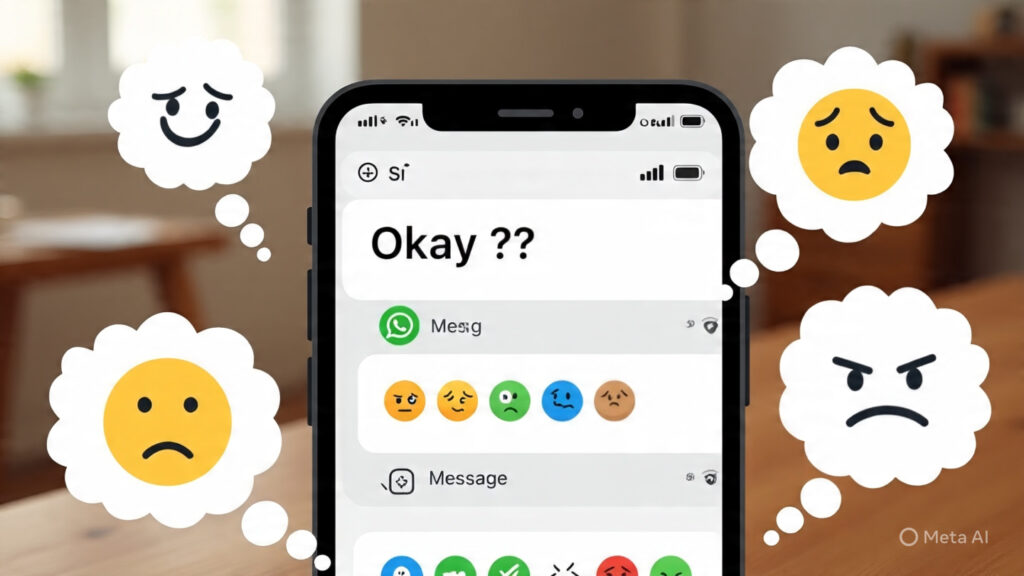
Miscommunication Through Text-Based Conversations
Texting is convenient but often lacks the depth of in-person or phone conversations. This limitation contributes to how WhatsApp causes misunderstandings in relationships.
- Ambiguous Phrasing: Short messages can come across as abrupt or vague, leaving room for misinterpretation.
- Lack of Context: Without background information, a message like “We need to talk” can sound ominous, even if it’s about something trivial.
- Overuse of Abbreviations: Slang or shorthand might confuse recipients unfamiliar with certain terms.
To mitigate this, try to be as clear and detailed as possible in your messages, especially for sensitive topics. If a conversation feels tense, switch to a call or video chat.
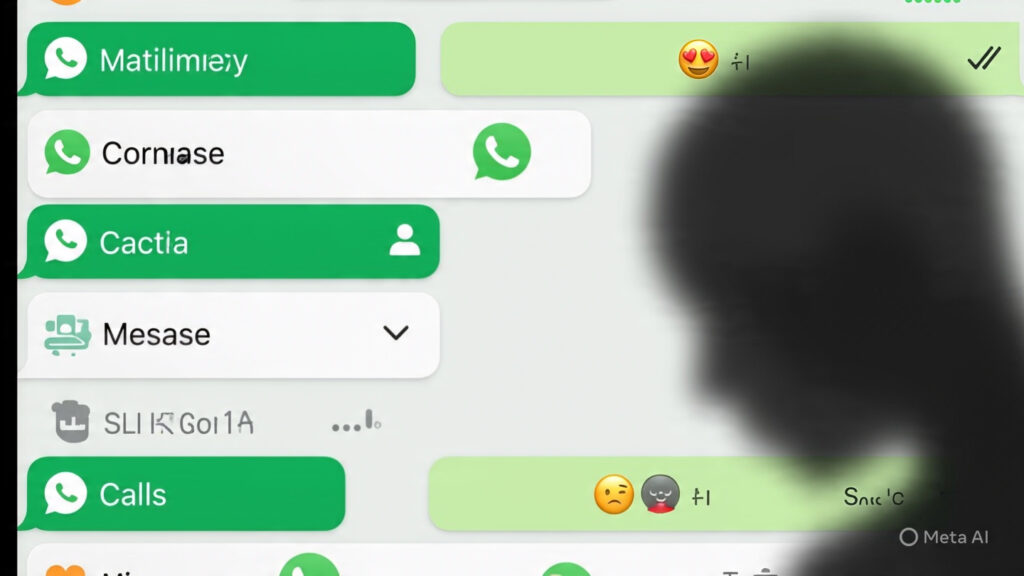
Group Chats and Their Pitfalls
Group chats are a fun way to stay connected, but they can also lead to misunderstandings, particularly in romantic relationships.
- Mixed Signals: A partner might misinterpret a group chat interaction as flirtatious or inappropriate.
- Exclusion Feelings: If one partner is left out of a group chat, they might feel sidelined or insecure.
- Overwhelm from Notifications: Constant pings from group chats can make someone seem distracted, even if they’re not.
Solution: Be mindful of how group chats might affect your partner’s perceptions and communicate openly about any concerns.
Other Contributing Factors

Cultural and Language Differences
Cultural nuances and language barriers can exacerbate misunderstandings on WhatsApp. For example:
- Regional Slang: Phrases common in one culture might be confusing or offensive in another.
- Translation Errors: Auto-translated messages can distort meaning, leading to unintended interpretations.
- Response Expectations: In some cultures, immediate replies are a sign of respect, while in others, delayed responses are normal.
To address this, take time to understand your partner’s communication style and clarify any cultural differences.
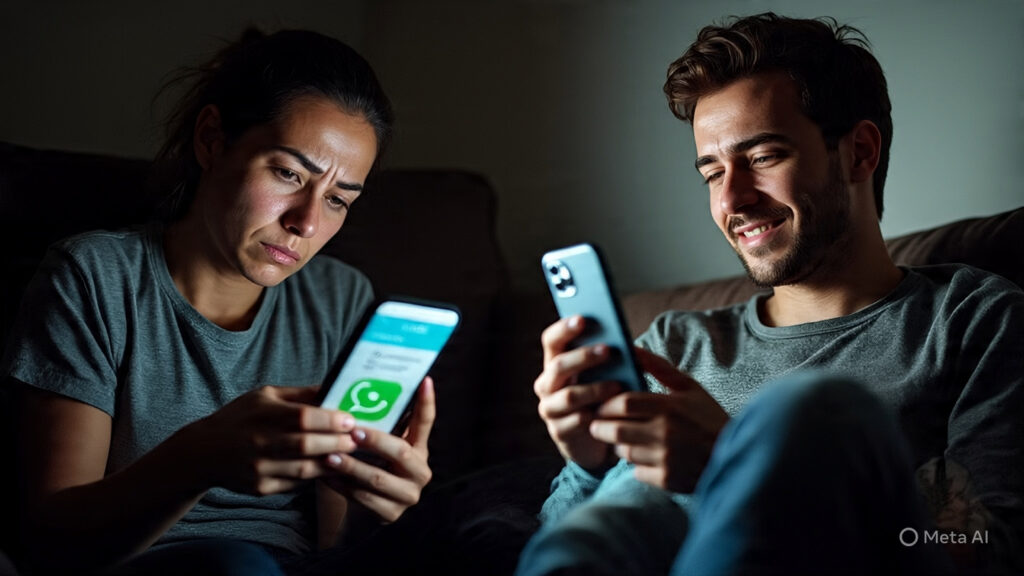
Over-Reliance on WhatsApp for Serious Conversations
Using WhatsApp for heavy emotional discussions is a recipe for disaster. Complex topics like relationship issues or future plans require nuance that text struggles to convey.
- Emotional Disconnect: Text can’t capture the empathy needed for sensitive topics.
- Misplaced Anger: Frustrations can escalate quickly in text, as there’s no immediate way to de-escalate with tone or touch.
- Lost in Translation: Long messages might be skimmed, missing critical points.
Recommendation: Reserve serious discussions for phone calls, video chats, or in-person meetings whenever possible.
The Role of Assumptions and Overthinking
WhatsApp’s real-time features, like “last seen” or typing indicators, can fuel overthinking. This is a significant factor in how WhatsApp causes misunderstandings in relationships.
- Assuming Intent: A short reply might be seen as cold, even if the sender was just in a rush.
- Reading Into Patterns: Noticing someone is online frequently but not messaging you can lead to insecurity.
- Misjudging Silence: Silence might be interpreted as anger or disinterest, when it could simply be a busy moment.
To combat this, practice open communication and ask for clarification instead of assuming the worst.
How to Prevent WhatsApp Misunderstandings
Communicate Clearly and Directly
To minimize how WhatsApp causes misunderstandings in relationships, prioritize clarity in your messages.
- Use complete sentences and avoid vague terms.
- If a message seems open to interpretation, follow up with a voice note or call.
- Be explicit about your emotions, e.g., “I’m joking!” or “I’m feeling a bit upset about this.”
Set Boundaries and Expectations
Discuss with your partner or friends how you’ll use WhatsApp. For example:
- Agree on reasonable response times.
- Decide when to switch to calls for serious topics.
- Clarify the use of read receipts or “last seen” settings.
Use WhatsApp’s Features Wisely
WhatsApp offers tools that can help reduce misunderstandings:
- Voice Notes: These convey tone and emotion better than text.
- Video Calls: A quick video chat can resolve conflicts faster than a lengthy text exchange.
- Status Updates: Use these to share context about your availability, like “Busy at work today!”
Practice Patience and Empathy
Before reacting to a message (or lack thereof), take a moment to consider the other person’s perspective. They might be dealing with a busy day, technical issues, or personal challenges.
Conclusion
WhatsApp is a powerful tool for staying connected, but it’s not without its pitfalls. From missing non-verbal cues to the anxiety of read receipts, how WhatsApp causes misunderstandings in relationships is a real issue that many face. By understanding these challenges and adopting strategies like clear communication, setting boundaries, and using WhatsApp’s features wisely, you can prevent unnecessary conflicts. Relationships thrive on trust and understanding, and with a little effort, WhatsApp can be a bridge rather than a barrier. Next time you’re about to send a tricky message, pause and consider: could this be better said in person or over a call?







